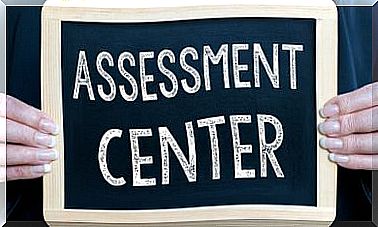When My Partner Gets Angry And Doesn’t Talk To Me, Why Does He Do It?

When my partner gets angry and doesn’t talk to me, I don’t know how to act. Do I apologize for something for which perhaps I am not responsible or do I wait for him to “relax” and we can resume the relationship? This series of questions, as striking as they may seem, are asked daily by a large number of people (perhaps even ourselves). Because this ruse, based on the law of ice, is a resource as common as it is exhausting.
“If you get angry, always think about the consequences,” said Confucius with great success. Now, to this wise advice we should add another small detail: “when you get angry, think about the image you give of yourself.”
It is clear that we all have the full right to get angry, but doing it in the right way is an art and says a lot about the human, emotional and psychological quality of each person.
Thus, one of the most complex situations is undoubtedly knowing how to handle discrepancies at the partner level. We cannot forget that in this context, any difference, small disagreement and anger, emotions are magnified and remain on the surface.
In this way, those who are not skilled at communicating, managing that internal universe to know how to reach agreements and channel the small day-to-day frictions, will undoubtedly lead to very complicated situations in their relationship.

When my partner gets angry and does not speak to me: silence as a form of punishment
Many of us have ever heard a child say that “Well now I get angry and I can’t breathe.” This type of childish comments may make us somewhat amused, but there are those who, already wearing adult life and clothes, resort to the same immature strategies. It is possible that someone in our environment acts in this way, withdrawing the word from us after an argument, holding their breath or simply causing really uncomfortable scenes.
However, this incompetence when it comes to managing differences is more problematic when we talk about emotional ties. Because if my partner gets angry and doesn’t talk to me, I don’t just suffer; Furthermore, I end up subjecting myself to a very sibylline type of emotional manipulation.
What’s more, the most complicated thing about this type of situation is that it does not usually happen only once. People who have relationships with profiles that use silence as punishment know that this is a very common resource. Now, but… why do they do it?
The law of ice and the brain that acts in anger
There are many types of psychological abuse. The human being has a doctorate in this specialty and applies it in very different ways, some in a more crude way and others a little more sophisticated.
Thus, when my partner gets angry and does not speak to me, he is making use of a type of skill that requires three very specific dimensions: directed anger, ego and purpose.
Thus, those who apply the law of ice know well what they are doing and what they want. He makes use of silence to wear down the other, to project the weight of guilt on the couple and then achieve their submission.
He also hopes, of course, that sooner or later the other party will come forward asking for forgiveness. Silence is, above all, a sophisticated resource arbitrated by anger : you have offended me and now you are going to receive your punishment.
On the other hand, there is an important detail that is worth considering. When we get angry, the prefrontal lobes, related to judgment and reflection, turn off.
It is then when the brain is completely hijacked by the amygdala, triggering those borderline emotions that make us act in the least successful way. Thus, there are those who exercise greater self-control over them and do not reach these limits, but others, on the other hand, are completely carried away by anger and rage.

People who get angry and stop talking to us, traits that characterize them
If my partner gets angry and doesn’t talk to me, I know they are displaying clearly childish behavior. However, his reaction hurts me, violates me and despairs me, because a relationship must be made of dialogues and not walls.
Also of mature mentalities that are capable of respecting differences, of reaching consensus by applying reciprocity and understanding.
Thus, whoever opts for silence and “now I ignore you and do not speak to you” is basically defined by a series of dimensions:
- Emotional immaturity and poor ability to handle discussions and discrepancies.
- Low resistance to frustration.
- Express desire to manipulate the other, to be the center of attention to make the other give up and thus, assume greater power.
- No ability to solve problems and to use adequate communication.
Now, beyond these characteristics there is an undeniable fact that we must assume: making use of silence, of the harshest indifference when there is a problem or a discrepancy is a form of abuse. If it devalues you, if it makes you empty when you think differently and withdraws your word for days, it is canceling you as a person using the emotional bond.









